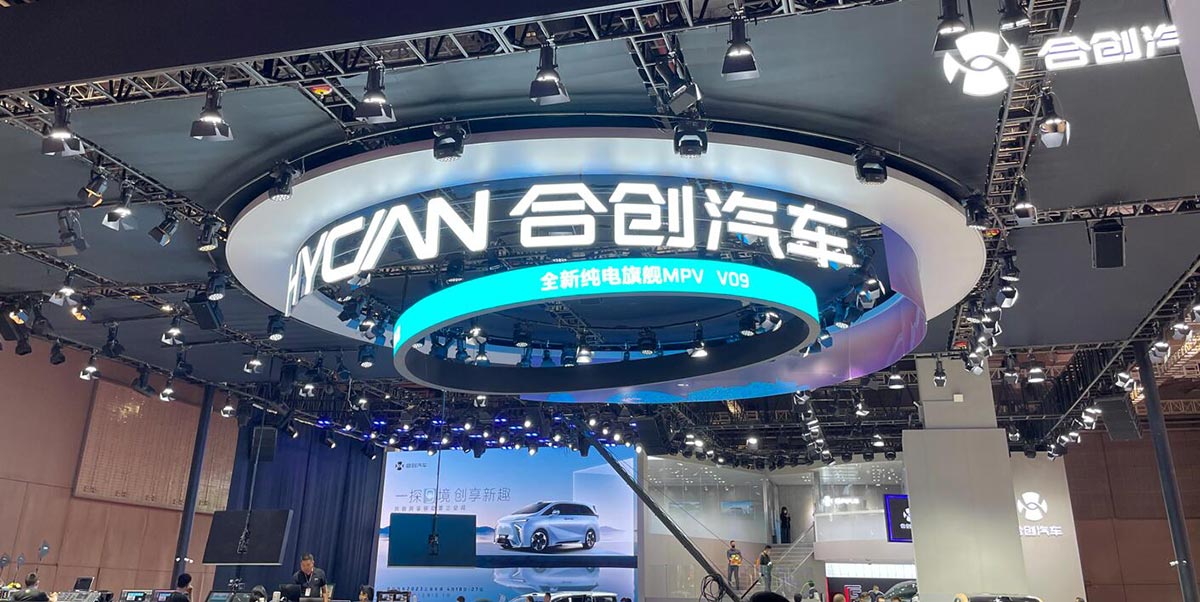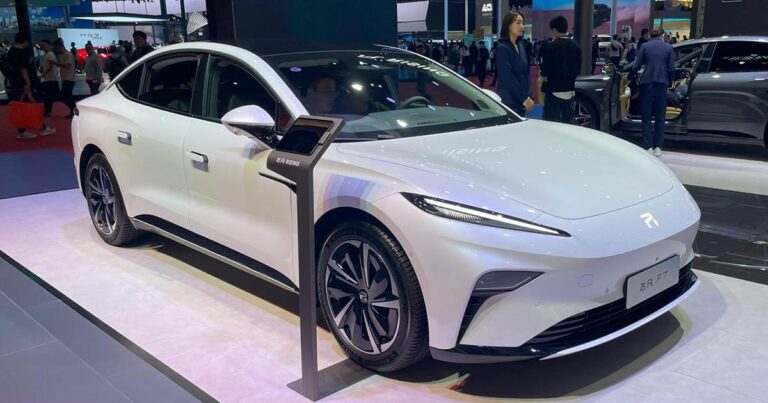Hycan, previously known as GAC Nio, has sold fewer than 20,000 vehicles annually for the past two years.
(Image credit: CnEVPost)
Hycan, the low-profile electric vehicle (EV) unit of GAC Group (HKG: 2238), is reportedly asking its entire workforce to help sell its vehicles, signaling pressure on its operations.
Hycan is asking the all company employees to sell cars, with staff required to visit dealership stores to help with sales efforts, and detailing incentives and penalties, a report in local media Jiemian said yesterday, citing recent rumors.
A Hycan employee confirmed the matter, saying that the requirement for all employees to sell cars had been in place previously, but had never been accomplished, according to the report.
The requirement, which began earlier this year and became official in March, is being pushed forward primarily by Hycan's marketing department, but other departments are not cooperating as much as they should at this point, according to Jiemian.
Hycan had asked each employee last year to sell one car made by the company during the year, the report noted.
Previously, there were rumors that Hycan had restructured its employee pay structure, with some employees reporting a 20 percent to 30 percent reduction in paychecks, according to Jiemian.
Hycan, originally named GAC Nio, was formed on April 10, 2018 as a joint venture between GAC and Nio (NYSE: NIO).
At inception, GAC and its affiliated entities held a 45 percent equity interest, and Nio and its affiliated entities also held 45 percent.
In 2019, GAC Nio released its first product, the HYCAN 007. However, after several years, GAC Nio was not successful in product development and the production model was not recognized by consumers.
In April 2021, GAC Nio changed its name to Hycan, removing the "Nio" word from the name.
In August 2022, the company underwent a change of shareholders, with Nio dropping out of the shareholder list. Prior to the change, Nio held a 4.46 percent stake in Hycan, according to CnEVPost's tracking.
Hycan's sales have been weak compared to GAC's other new energy vehicle (NEV) brand, GAC Aion, with annual sales of less than 20,000 units in both 2022 and 2023, Jiemian's report noted.
Hycan currently has four models, including the mid-sized sedan Hycan A06, compact SUV Hycan Z03, mid-sized SUV Hycan 007, and MPV Hycan V09, with a starting price range of RMB 134,800 ($18,730) to RMB 318,800.
Hycan's biggest problem is its positioning, with its models not differentiated enough from the GAC Aion that it has a hard time gaining a presence in the market, Jiemian said, citing comments from an unnamed industry source.
The dilemma facing Hycan appears to be similar to that of Rising Auto, owned by another auto giant SAIC Motor Corp (SHA: 600104).
Earlier this month, local media outlet RoboX reported that SAIC had begun laying off staff, with Rising Auto employees bearing the brunt of the cuts, as part of a cost-cutting and brand realignment move.
Rising Auto employees are expected to be laid off by more than 70 percent, while the odds are that the remaining employees will take a pay cut, according to the report.
Rising Auto later called the recent rumors untrue in a letter sent to its partners, but said it's moving forward with an asset-light strategy and will increase resource synergies with SAIC.
SAIC formally established Rising Auto in late 2021 and placed the R Brand, formerly under SAIC Passenger Vehicle, under the new brand.
($1 = RMB 7.1989)

